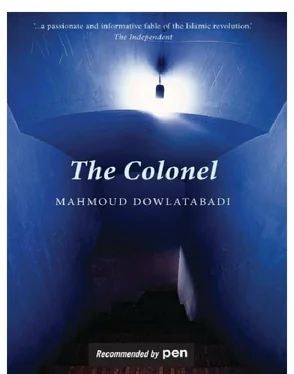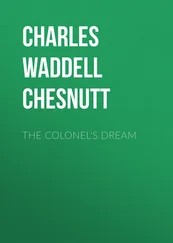“Would you believe that in all the mayhem of the revolution I still walked right through the middle of town, just like that? Would you believe that?”
Amir said that he believed it. He knew that the arack had gone to Khezr’s head, but had not made him drunk. He remembered that, some nights when things were not busy in the interrogation block, Khezr would sit in his room after a glass or two and talk about himself and brag about his deeds of derring-do, how he had been in Dhofar and been on dangerous missions in the marshes along the Iraqi border, which had all ended in success. And indeed, his swift rise in the security services did seem to indicate that there was some substance to his boasts.
“It must have been towards the end of February, in fact ten days after February 11th, the day the Shah left, that I saw three of your comrades. Two of them had been my prisoners and I knew the other one. What do you think happened? They went white as chalk. They knew very well that, one squeak out of any one of them, they were all dead meat. So what do you think happened then? Everything went off nice and peacefully, as it turned out. Except that, the very next morning, on the front page of your newspaper, there was a lead article asking what sort of revolution this was that allowed former executioners to walk freely in the streets. And this, of course, was under a big headline announcing that you were publishing a list of all SAVAK informers. The comrades had pointed out the lion tracks. So what was your politbureau up to, then? Why aren’t you drinking?”
There was no doubt in Amir’s mind that Khezr was telling this story because of Mohammad-Taqi. Khezr was clearly both suspicious and afraid of Amir’s wild and hot-headed brother, but he wanted to give the impression that he was not in the least worried by what he might do. Perhaps he had decided to spend the night here precisely in order to dispel any impression that he was going to creep around in fear of Mohammad-Taqi. As it happened, his reasons for doing so were quite different, but Amir would only learn about this later.
“You said you don’t want a drink. Why not?”
Amir said he didn’t like it; it damaged his brain. Khezr had already asked him this question. Now he was asking again. This showed that he liked repeating himself. Amir knew Khezr well enough to know that this was not a sign that he was unexpectedly drunk. Khezr drained his glass and told Amir he could put the stopper back on the can, and keep it for tomorrow evening. Then, not fussing about creasing his trousers, he stretched out on the bed and closed his eyes.
Amir knew that Khezr always slept with one eye open and never went into a deep sleep. But at least he was in bed now, and the evening was at an end, which meant that Amir, too, could think about sleeping at last. He could have gone upstairs to get a mattress and blanket for himself, but decided against it, firstly because he didn’t want to run into Mohammad-Taqi and, secondly because he did not want to stoke up Khezr’s suspicions any more. Instead, he made a makeshift bed on the rush mat on the floor, but he entertained no hopes of sleeping. He got up once to collect the glasses and other bits and pieces on a tray, which he did not want to take upstairs, then again to turn off the light and switch it back on again. Then he lay awake for a long time wondering whether Khezr wanted the basement door shut or left half-open. Every time he got up he noticed that Khezr’s right eye was half open. He also took in that Khezr was lying so as to face into the room. Amir usually slept with his face glued to the wall. Finally, leaving the light on and the door half-open, he lit a cigarette and lay back. With one arm flung over his forehead, he tried to calm himself down by watching the smoke curling upwards between his fingers. Sleep was out of the question, not because he had been sleeping all afternoon, but because he kept turning over in his mind what to do about Khezr — the enemy within — as Mohammad-Taqi would have put it. He wanted to treat it as a perfectly ordinary matter, but even that was impossible. He could only hope that Mohammad-Taqi had got off his high horse and had gone to bed. It was even more important that Masoud should spend at least tonight either in the mosque or at the neighbourhood Komité 38and not show his face at home. He also hoped that Parvaneh would not get to hear of his little problem. For it was quite possible that she, the last person one would expect to do such a thing, would let the cat out of the bag and bring disaster down on the family. Amir felt as if the evil eye had struck him through his brothers and sister, with all their crazy carryings-on in the revolution, and he was frightened by it. They were all in it, up to their necks, for heaven’s sake!
“I think I’ll go and get a nose job!”
There was a change in tone from Khezr now, from his previous sickly-sweet, drunken and sleepy utterings. Thinking he ought to show that he was listening, Amir propped himself up and turned towards Khezr to face him. There, standing in the doorway, was his brother Mohammad-Taqi holding a mattress and quilt under his arm:
“I thought the floor might be damp, bro. I’ll take the tray up as well.”
Amir sprang awkwardly to his feet. He did not know which to do first, take the quilt and mattress, or pass his brother the tray. To his utter bafflement Khezr who, through his half-open eye must have seen Mohammad-Taqi standing there in the doorway, began to speak, in a perfectly flat, even voice:
“My father said… my father wished to be buried… in the highest part out in the country… on the highest hill outside the town… he had seen a little place and bought it.”
“Er… yes… er… God rest his s…”
“Brother!” Mohammad-Taqi’s shout drew Amir up sharp and made up his mind to take the mattress first and then pass over the tray. His brother had already spread out the bedding on the mat and was waiting with arms outstretched to take the tray. This helped him. Like a sleep-walker, he picked up the tray of dirty plates and handed it to his brother. “I’ll get you some water.”
“My father wanted to be buried in the open air, he wanted a cool breeze coming down the mountain to blow over him. You know, he believed that fresh air was good for the soul… I don’t know why I’m thinking about your father’s death, the colonel’s death… damn it!”
“Mr Javid, would you like me to make you up some lemonade?”
“I’m going for a nose job… And, when I get back, you will see that this lumpy monstrosity on my face will have gone… My father was always saying that a man needs fresh air for the good of his soul… Damn you… Damn all of you!
Damn you all, you useless bunch! Couldn’t you have blown him sky high? Didn’t you have even a Kalashnikov or an RPG-7? 39Did none of you have any balls between your legs? Oh no, you stupid airheads went out waving silk handkerchiefs to welcome him, waiting for him to come and stick a hot poker up your arses, and forced me to submit my honourable nose to the indignity of the surgeon’s knife… and to glue a fuzz of beard onto my immaculate face, which I have been shaving religiously every morning for the last thirty years… and made me drink this revolting hooch out of an old petrol can, instead of the sublime Johnnie Walker, and wake up half-blind from it in the morning… couldn’t you, couldn’t you have just blown him out of the bloody sky? 40No, you couldn’t… Damn the lot of you! And now you want to go and start a revolution in Turkmen country, do you! I’ll kill the lot you, you whoresons!” 41
“Would you like me to light you a cigarette?”
The only response was Khezr’s snoring. Amir calmed down a little and, hoping that his guest would fall into a deep sleep, he rested his head on his arm once more and stared up at the damp, bulging ceiling of the basement. But he was far from certain that Khezr would fall into a deep sleep, or even a drunken slumber. In prison, they had called Khezr ‘The Dog,’ because dogs are both awake and asleep at the same time.
Читать дальше












